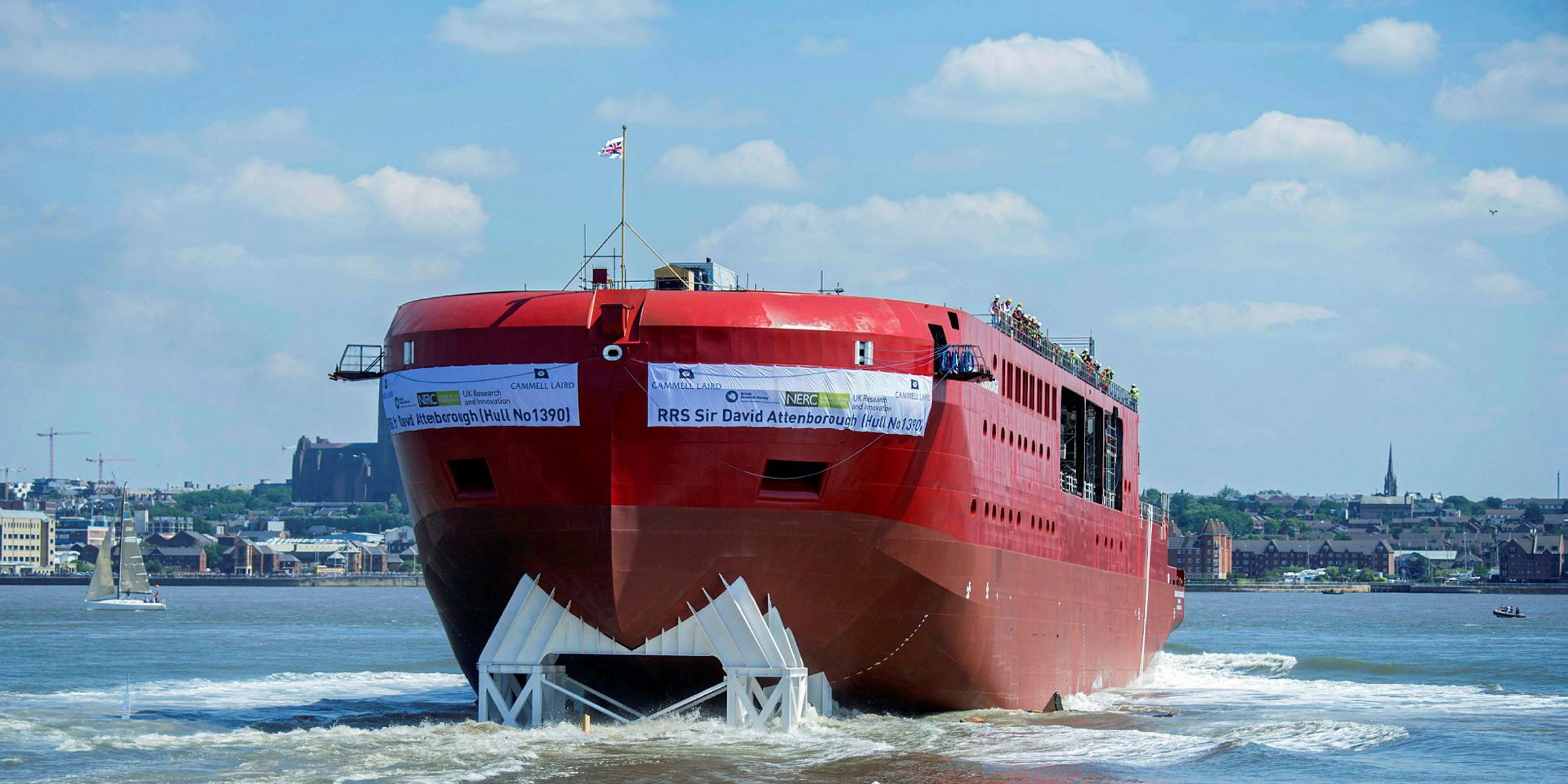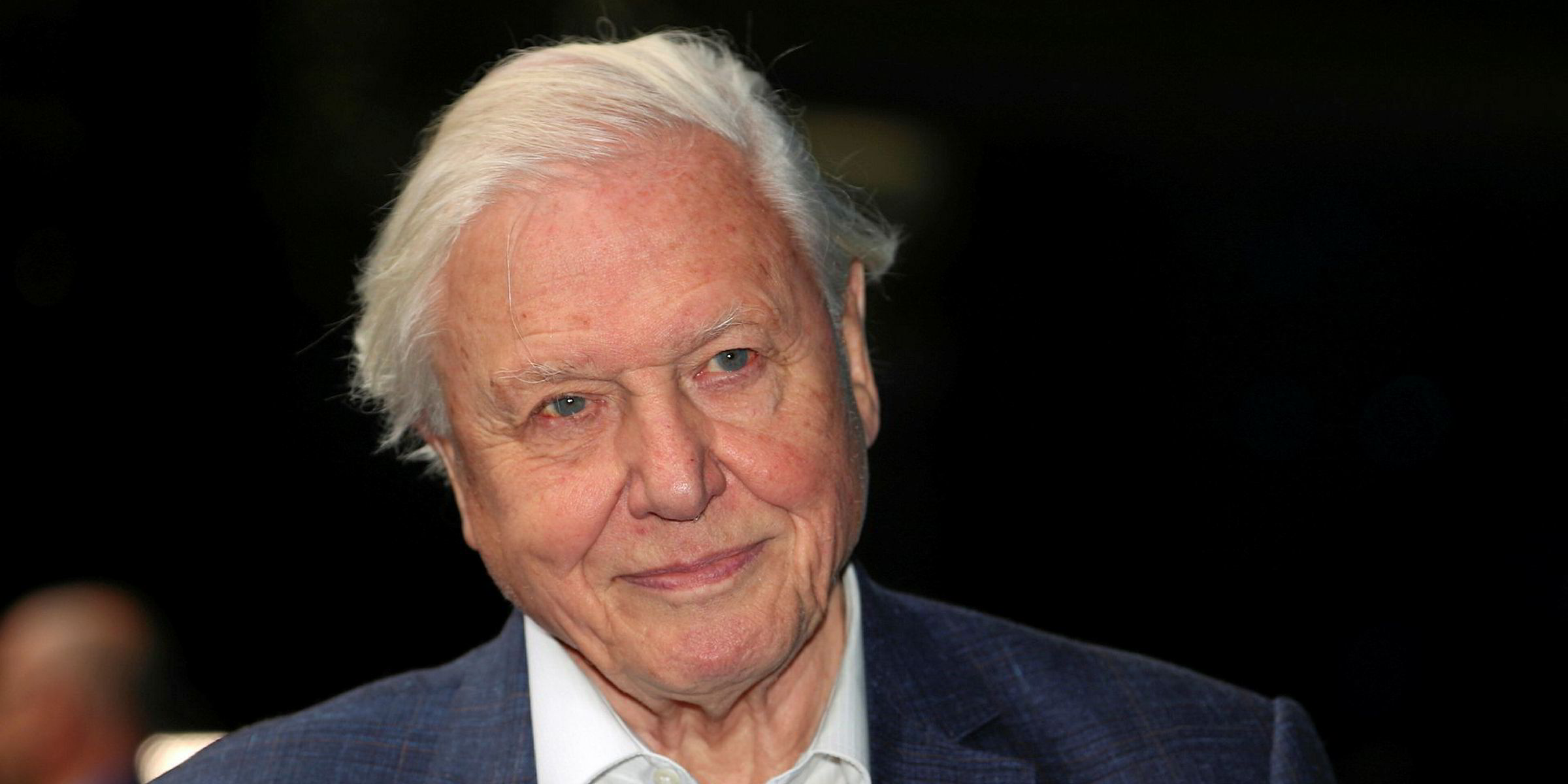Just one day after a political wrecking ball in the shape of Donald Trump arrived in the UK last Friday, a really positive maritime event happened.
Few probably read about it because all of the media's oxygen was sucked out of the room by the US president undermining his host, UK Prime Minister Theresa May — as well as the European Union “foe” and Nato.
This meant there were only a few newspaper references to the hull of the biggest civilian ship to be constructed in the UK for the past 30 years being launched into the River Mersey.
Sir David Attenborough, the famed wildlife broadcaster, pressed the button to send the 15,000-gt vessel that is named after him sliding into the water in the North West of England.
The £200m ($263m) ship will now be fitted out in the wet basin of Cammell Laird before being deployed by the British Antarctic Survey (BAS) for polar research.
It was very good news for the depleted rank of UK shipyards — and for the wider industry — as it allowed the public to remember that ships are needed not just for cargo movements and perhaps the odd cruise but also for high-end science.
The man and woman on the street — and, more particularly, online — have already bonded with Cammell Laird’s research vessel.
That is because they were asked to come up with names — and the joke title of Boaty McBoatface went viral on social media.
Disrespectful? No, just a bit of ridiculous humour that caused a lot of laughs and made traditional newspaper headlines worldwide.
It was possibly one of the reasons that the BBC bothered to send a science correspondent up to Merseyside to cover the story last Saturday. “Sir David Attenborough launches ‘Boaty’ polar ship”, the headline said.
The levity of the name certainly contrasted with the serious claims from the narrator of the Blue Planet television series at the launch that “our future will be affected by what people working on this ship will be discovering in years to come”.
Attenborough added other comments that signalled the importance of the vessel in tracking planet-damaging global warming too.
“When 100 years ago this country sent people down to the South Pole, we were the pioneers in exploring the Antarctic," he said. “When we did so, I suspect the reason we did was the South Pole seemed as far away as it could possibly get to be on this planet.

“Now, 100 years later, we realise that remote place is, in fact, key to the understanding of the whole planet. What goes on down there affects the whole of the Earth."
And Professor Dame Jane Francis, director of the BAS, said the new vessel would enable her organisation to do “frontier science that we haven’t been able to do in the past”.
With some kind of strange synchronicity, a 100-metre high iceberg — presumed to have broken off a Greenland glacier due to a warming North Pole — threatened the Arctic village of Innaarsuit.
And all of that at a time when an extraordinary heatwave continued across the UK and the European continent, underlining the weather’s unpredictability in a world of growing climate change.

But the other less encouraging bit of synchronicity was the fact that the US president was in town telling Prime Minister May that she should give up negotiating Brexit and just sue Brussels while praising her most dangerous rival, Boris Johnson.
Whatever happens over Brexit — a chaotic, “hard” departure from the European Union with no formal trading deal looks quite possible now —the maritime industry must fight its corner.
Given that national sovereignty and, say, fishing have become significant issues for many in the UK, they may think more about the role of the wider maritime sector to this nation.
Now is surely the time to bang the drum again on the National Shipbuilding Strategy produced in late 2016 by Sir John Parker, the former boss of Belfast-based shipbuilder Harland & Wolff.
Certainly, the world needs a new generation of smart, environmentally friendly vessels. UK shipyards such as Cammell Laird and Pallion on Wearside could help show the way to build smaller, more specialised ones.
A UK outside the EU’s competition rules could subsidise as much research and development on “green” ships as it wanted. That would be one tangible Brexit bonus.




